Looking at Mitu from the Jingyao Case: The Practice, Reflection and Development of the Transnational Feminist Community
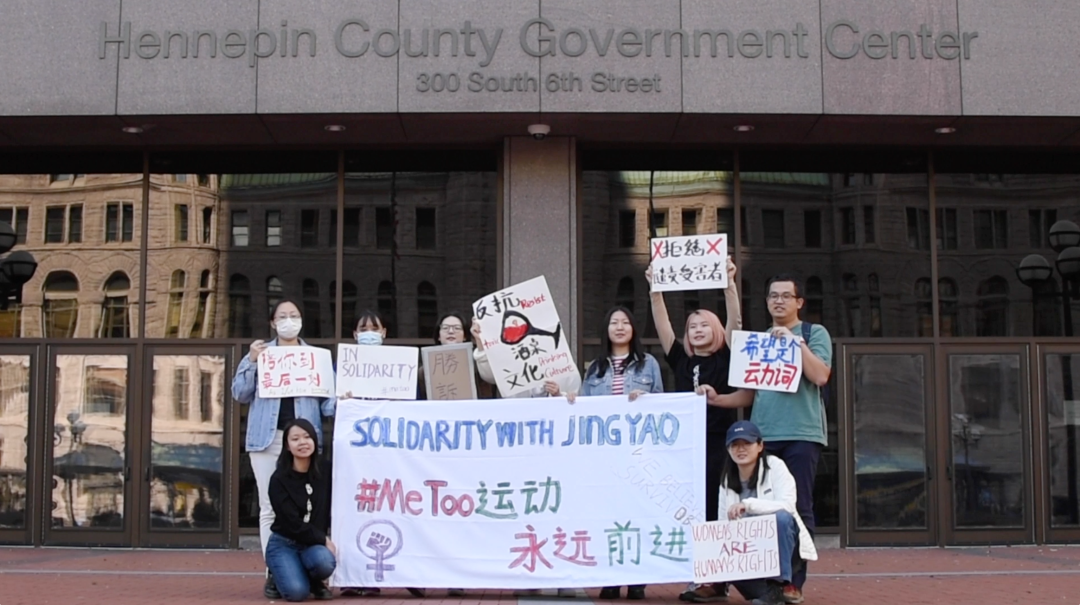
*This article is compiled from the sharing of "Support Jingyao Group"
On the morning of October 2, 2022, the news that Jingyao v. Liu Qiangdong signed a pretrial agreement in the civil sexual assault case came out. The first reaction of many of us was surprise, and there was no way to react, accompanied by a sense of weightlessness not knowing what to do next. . Many partners put in a lot of labor for the hearing on October 3. Some came to Minnesota from Canada and various states in the United States, and some provided support such as translation and dissemination online around the clock. However, we soon realized that this was Jingyao's right and what mattered was what this choice meant to Jingyao and how we could continue to support her.
Rationally, we have always known that this case could reach an agreement at any stage of the trial, like all civil lawsuits in the United States. Liu Qiangdong and Jingdong have long proposed an out-of-court settlement to Jingyao to avoid the case being brought to a public trial, but Jingyao did not accept it before. Our original intention is to accompany Jingyao. She has now decided to stop the case here, which we believe is the best option for her.
But from now on, we are facing new challenges : the battlefield of this case has shifted from the court to the field of public opinion. With the tendentious reports of domestic media and marketing accounts, how to deal with the new round of cyber violence against Jingyao? How does the feminist community understand the impact of the pretrial agreement on this case, on the #MeToo movement, and on the general public? How does the #MeToo movement continue?
1. Basic interpretation of the pretrial agreement
From a translation point of view, the term "settlement" is more accurate than the term "out-of-court settlement" used by many media. In 2019, the Jingyao v. Liu Qiangdong civil sexual assault case has entered the US litigation process. Now, there is a fundamental difference between the case not being negotiated privately outside the courtroom, but closing with an agreement before a jury trial begins.
The "misunderstanding" in the statement is translated into "misunderstanding" by most of the domestic media, but we believe that the more accurate translation is "disagreement". In this case, the so-called "disagreement" lies in the existence of sexual consent . In the records made public in court, Liu Qiangdong himself also said that Jingyao never actively or passively stated that he wanted to have sex with him on the night of the incident.
The pretrial agreement locked in two facts:
1. Although Liu Qiangdong and BOE have always denied the fact of sexual assault, they do not want the truth to be disclosed further and are willing to pay for it;
2. Regarding the events that occurred on the night of August 31, 2018, Jingyao never gave "consent" whether it was that night, during the trial, or in the agreement.
Because of entering the judicial process, many information and results of this case can be presented to the public fairly. This has important implications for raising public awareness, the growth of the #MeToo movement, and the individual practice of feminists. This stems from Jingyao's fight for this case.
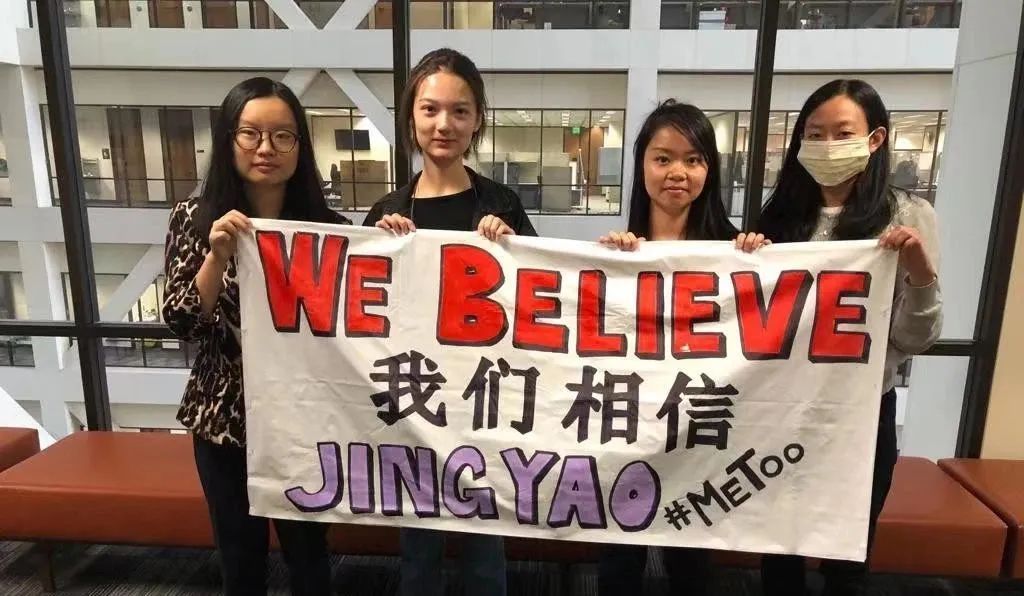
2. Response to issues raised by feminists
Some people feel puzzled or uneasy about why Jingyao chose the "pre-court agreement". Feminists need to answer this, it is an important part of social movements, and it also gives us the opportunity to improve our self-learning ability and spread our thinking. Below we try to answer common doubts.
Question 1:
"Jingyao didn't get the justice she wanted and it was a failure or an imperfect outcome for her"
response:
In the United States, only a small percentage of federal civil cases go to full trial , in 2017, the percentage was 0.9% [1]. Moreover, the judicial process is not friendly to survivors of sexual assault. The parties involved have to tell their experiences repeatedly on countless occasions, and every sentence is amplified to find loopholes. This is a very great torture.
We witnessed Jingyao go through this process when we attended the trial. If the trial continues, Jingyao will have to face 12 local American jurors. They don’t understand China, they don’t understand the wine table culture, and they may not understand why a young girl wants to join 15 middle-aged men in a banquet and is forced to accept drinking. All of these require Jingyao and her lawyers to prove, explain, and persuade, and her words will be interpreted by the public in various ways. Now, Jingyao doesn't have to go through all this, we are really happy for her.
The existing legal system is deeply embedded with the patriarchal system, and there are huge flaws in the handling of sexual violence cases . Most sexual assault cases lack direct evidence and are in a "black box" state-this is why the perpetrator commits the violation. Many rapes are committed in a "rape-like" way, where the perpetrator uses power to keep the woman from directly and visibly resisting. This is interpreted by the patriarchal society as women's refusal to welcome. Therefore, there will be the rise of the #MeToo movement, and victims will seek justice through public speaking.
Many supporters believe that truth and justice can be done with the support of courts and juries. However, the judiciary of China and the United States is difficult to support our trust. On the contrary, the results they give may negate our justice and cause irreparable harm to the parties and supporters. From this perspective, there are advantages for the parties to lock in the facts and compensation as much as possible through the agreement.
If we blame Jingyao for not going to the so-called end, ask yourself: When encountering injustice, to what extent can we give everything to seek justice? If we didn't persist, we must have encountered some difficulties. From 2018 to the present, China's #MeToo movement has provided a lot of information, including this case. It is the homework of responsible public actors to understand #MeToo and the situation of those involved.
Question 2:
"I understand Jingyao's choice, but I thought she cared more about justice"
response:
my country's judicial process has little room for financial compensation for sexual assault judgments. In our culture, the only way to win a lawsuit is to lose or win. It is especially taboo to talk about money, as if "taking money" is a bad result. In the face of sexual assault cases, the public has stricter requirements for women .
After entering the judicial process, almost all victims of sexual assault are required to prove their innocence. Some victims will donate the compensation in order to win everyone's trust that the harm she suffered is real. The society generally agrees that victims of traffic accidents should receive financial compensation, but they are particularly sensitive to compensation for victims of sexual assault. There is also a sexual stigma against women behind this.
Monetary compensation is itself a compensatory means . In an interview with The New York Times, Jingyao said she had recurring dreams of someone breaking into her home and sitting on her, leaving her unable to speak or move. This is also a manifestation of traumatic stress disorder. If the sexual assault did not happen, the victim would not have to go through the pain, which cannot be measured by money. In addition, the legal fees and psychological consultation fees paid by the victims, as well as the economic losses caused by the interruption of work and studies, should also be reasonably compensated.
From a practical point of view, most perpetrators of sexual assault will not be convicted under the current law, and do not even need to bear any legal consequences. Many victims want an apology from the other party, but the reality is that few perpetrators will admit their mistakes. After entering the judicial process, the possibility of dialogue between the victim and the perpetrator almost disappears, and all communication will become testimony. It is not uncommon for the parties concerned not to receive justice in the law, nor to obtain a statement from the perpetrator. In this case, it is necessary to make the perpetrator pay as much as possible . Jingyao received economic compensation through the procedural space provided by American law, which is also an encouragement for the survivors to defend their rights.
The Jingyao case is a public event and one of the most important cases in the #MeToo movement. It's understandable that people have expectations about its outcome. Jingyao first stands in court for herself, and she bears the greatest price for this. When she decides to stop, it is not her responsibility to continue to meet public expectations. Finding the fairness and justice we desire requires our own sacrifices.
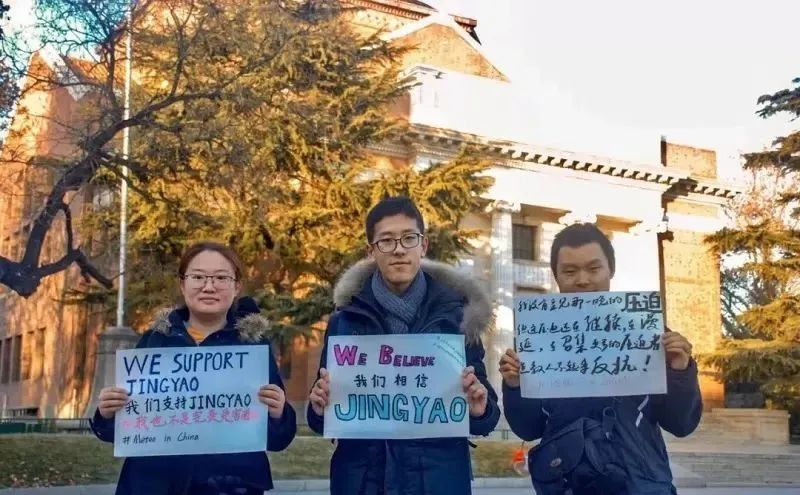
3. How to deal with the upsurge of anti-feminist rhetoric
As we expected, public opinion on the Internet against women's rights in China is on the rise. Although Liu Qiangdong promised in the agreement that he would not express his views on this case, it is clear that the public relations operation has not stopped, and a wider range of patriarchal activists are spontaneously carnival. Our urgent job is not to get involved in personal entanglements, but to respond to these public opinions from a public perspective.
Myth:
"Money can solve nothing"
response:
Liu Qiangdong paid a huge price for this case, not just money. Jingyao exposed the corruption of the dinner participants and exposed their attitudes towards women by telling her own experience. Throughout the process, Liu Qiangdong kept evading public explanations. He first attacked Jingyao and pretended to be a victim, and now he used his wife and children as shields to hide behind others forever. His cowardice is obvious.
In the early stage of the case, perhaps Liu Qiangdong thought that he would not pay too much. The solidarity of Jingyao supporters was one of the reasons why he was afraid. In April this year, the case is expected to hold an online hearing. When it was discovered that many Jingyao supporters had applied for the hearing, Liu Qiangdong's party quickly canceled the hearing motion.
In a culture of patriarchy and Mu Qiang, Liu Qiangdong, like other powerful people, believes that they deserve everything for free, including forcing women to have sex without paying any price. Liu Qiangdong's supporters said, "Does Brother Dong still need to rape?" In their view, as long as they have money and power, women will take the initiative to jump up. This is the logic behind their sexual assault. Spending money to fix it would have meant a huge failure for them. Because of the lawsuit, Liu Qiangdong was forced to resign as a member of the National Committee of the Chinese People's Political Consultative Conference and lost his important political umbrella. Under such circumstances, saying "money can solve everything" is just self-consolation.
People cannot deduce the cause from the result, and think that receiving compensation can deny the fact of sexual assault. Liu Qiangdong's agreement to close the case just proves that rich people can't do whatever they want.
Anyone who says "no matter what money can solve" is an accomplice in the consolidation of rape culture. In their eyes, women's wishes, bodies and dignity are not important, and money and power are linked to doing whatever they want. These people are also part of a society where the weak prey on the strong, and may suffer from it, but instead of sympathizing with the weak, they draw closer to the strong and become their accomplices. Sexual violence is the complicity of society. Although this case has come to an end, the reflection on the power structure and legal system is not over. Everyone needs to think about how to cut off the chain of gender violence .
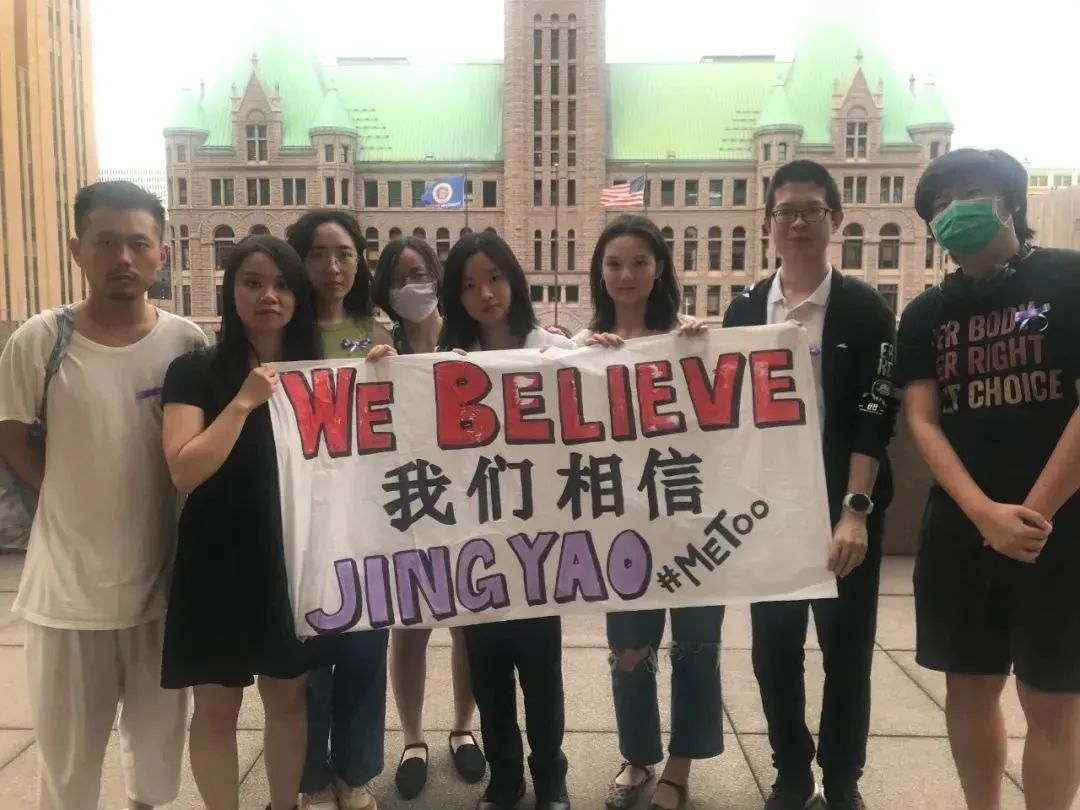
4. Contributions and achievements of supporters
In order to promote the protection of Jingyao's rights and interests, supporters have done a lot of work before:
- Build feminist discourse
In 2019, online violence against Jingyao emerged on the Chinese Internet. Jingyao’s supporters launched #我也不是维权者者# and other activities to start an open and in-depth discussion on rape culture. Jingyao is an international student at the University of Minnesota. Her supporter program recruits young girls and has no mechanism to protect them from sexual harassment and assault. Local police in Minnesota also favored Liu Qiangdong in their handling, such as driving him—a suspected sexual assault—back to his apartment. Proponents continually reiterate how sexual violence is systematically condoned by Native American public authorities and schools. During the course of the case, supporters collaborated in translating the case documents, released interpretations of the progress of the case, and continued to spread feminist discourses.
- Enlist the support of local groups
This case is not only a part of #MeToo in China, but also a case that took place in the United States. Before the trial, the moderator sent multiple emails to local Minnesota progressive groups concerned with women's rights, racial issues and survivors of sexual assault. Many people made a promise: even if they can't participate in the audition, they will go to the scene and pass the news within their communities.
- Organize to attend court hearings
In April of this year, the case was originally planned to hold an online hearing. Supporters organize the public to observe online, make court trial posters and tutorials for applying to observe, and continue to repost and mobilize. In order to apply for a closed-door trial, Liu Qiangdong and JD.com took screenshots all night, and submitted the poster and the content posted by the Weibo account "support Jingyao" to the judge in legal documents. After being rejected by the judge, Liu Qiangdong's party withdrew the hearing motion. It was an immediate victory for supporters, and its actions have left their mark on the public court record as part of the history of the case.
- Online and offline support activities
Since September, feminists from all over the world have formed groups supporting Jingyao across time zones. Online supporters plan to donate one month to relay the translation of court hearing information and make posters. In order to attend the trial offline, many people save air ticket money in advance and take time off to ask for leave. In order to ensure that someone can enter the courtroom every day to show support, everyone plans to take turns to go to the scene.
Supporters continue to call on the media to write letters to the court, demanding that the trial be open and broadcast live globally. At least five large media and other media of different sizes submitted applications to the court for live broadcasting, although in the end they were unsuccessful due to objections from Liu Qiangdong and JD.com. A number of published reports have powerfully joined the voices of supporters.
After the news of the "pretrial agreement" was announced, on October 2 and October 3, local time, supporters held rallies in support of Jingyao before the court that was originally scheduled to open.
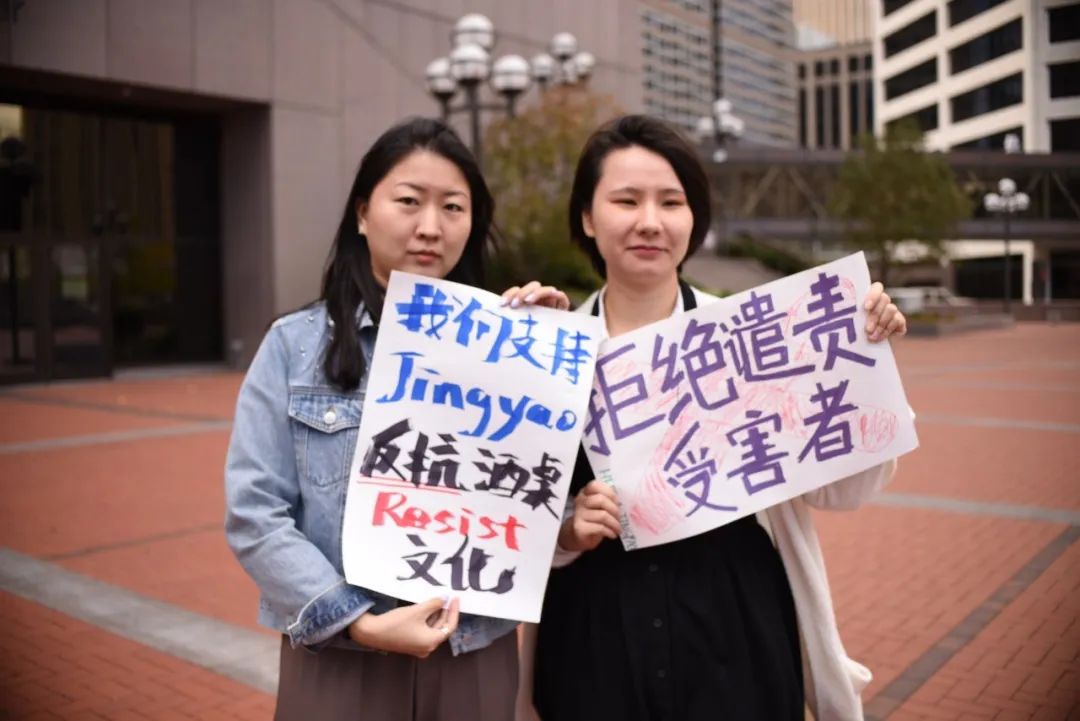
5. Open the future of feminism and #MeToo
Since 2018, the #MeToo movement has revolved around individual cases. However, the #MeToo movement should not and will not place all its hopes on a single case. We wish each individual a new phase of life, and that’s what feminism has always been about—not demanding perfection from the victim, embracing the female narrative, seeing the individual’s situation, and respecting the person’s choices. We believe in Jingyao as always. Jingyao did not leave us either. She felt the feelings of her supporters and made her promise. Her relationship with us will not be brief and utilitarian.
At one time, we thought that #MeToo would not end easily. As long as sexual harassment and assault are still common, the next victim will come forward. But now we suffer from many restrictions, such as language, legal, and institutional gaps, information censorship and suppression, public opinion counterattacks, and legal risks faced by the parties...
Jingyao’s persistence over the past four years has actually opened up a space for public discussion, putting feminist issues on the public agenda, such as sexual assault by power, rape culture myths, and society’s condemnation of victims. The social impact brought about by these discussions will not be eliminated by the end of this case.
In the process of advancing the Jingyao case, transnational feminist cooperation has been practiced and developed like never before. Nowadays, the term "transnational" is tabooed by many. But the dualistic, segregated environment we face is not a spontaneous state, but the result of ideological constraints. Feminists refuse to be closed by binary opposing discourses, use common words and actions to penetrate the barriers, and flexibly use our tiny and precious resources . Despite censorship and resistance, such practices are important and should be maintained.
People are witnessing the collapse of China's public space. People have made various attempts to have a voice on the public Internet, and some people have been punished for this. This case once again demonstrates how supporters make use of diverse, fragmented, and ever-changing spaces, using pictures, videos, long and short articles...to try to convey our voices. Our strength is so meager, but we carry such great expectations. Darkness cannot hide us forever, people are always looking for opportunities.
【references】
【1】Judicial Business 2017, Table C-4A, http://www.uscourts.gov/sites/default/files/data_tables/jb_c4a_0930.2017.pdf
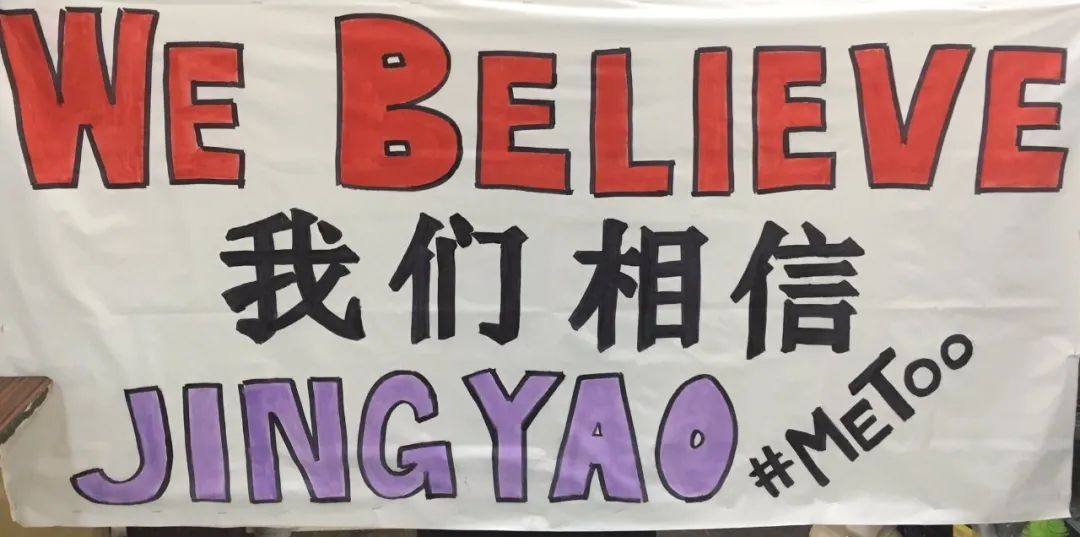
Like my work? Don't forget to support and clap, let me know that you are with me on the road of creation. Keep this enthusiasm together!


